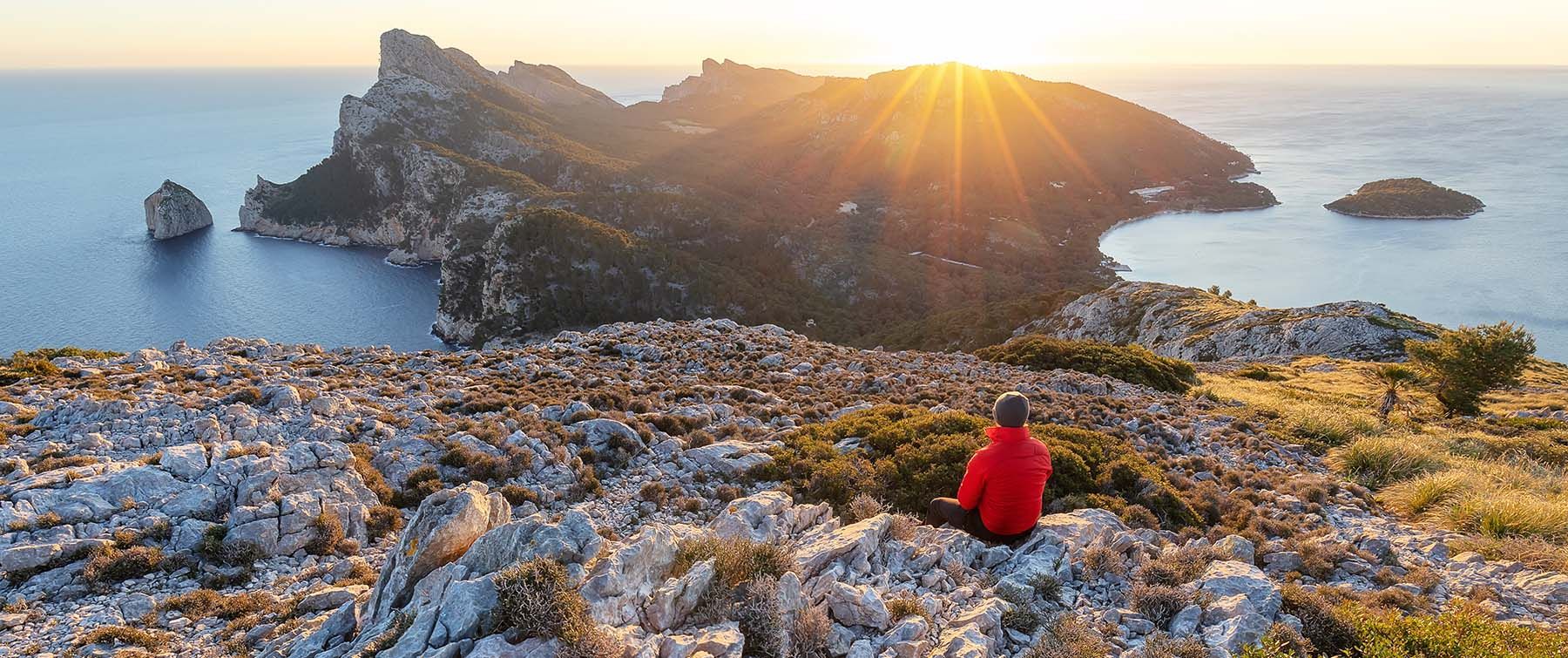Choosing your accommodation
As an ecotourist, discover different types of accommodation such as ecolodges, eco-cottages, a stay in the country on an organic farm or even a night in a treetop! There is a vast choice of types of accommodation to suit all budgets and comfort requirements.
Agritourism is well-developed in Sardinia a and offers a superbly convivial accommodation alternative!
Being careful about what you bring with you
Bring environmentally-respectful products: rechargeable batteries, biodegradable soap and suncream, a minimum of packaging. Corsica has said ‘No to plastic bags’: bring bags-for-life to do your shopping.
Choosing holiday activities
Low-pollution sports and activities, nature-discovery, the protection of endangered species, volunteer work… choose low-impact activities and contribute to the protection of the environment.
Forget the car !
Opt for walking or riding a bike for short journeys or for nature-discovery! In Majorca, many trails and paths are accessible by bike.
Save on water and electricity
As at home, save on water and electricity... opt for a shower (50 litres) rather than a bath (150 litres).
Water the garden in the evening when there is less evaporation: this represents a 50% water-saving.
Use the double water tank when flushing the toilet.
If at a hotel, ask for the towels and sheets not to be changed every day. Laundry is heavy on water and electricity consumption and generates considerable water pollution.
Instead of using air-conditioning, open windows and doors in your accommodation.
Buying locally
In Corsica, Sardinia or the Balearic islands, buy locally. Each of these magnificent destinations has a vast choice of local products whether cured meats, cheese or local fruit and vegetables. Local markets and small producers make it possible to opt for local quality products thus favouring short supply chains and the local economy.
Respecting the environment
Respect the marking of paths so as not to damage wildlife and the ground. Never throw cigarette stubs away; use a portable ashtray. Abandoned glass is dangerous! Bottles left on the ground can become magnifying glasses and provoke forest fires. Campfires and barbecues are forbidden in the summer.
Protecting flora and fauna
Opt for biodegradable suncream at the beach instead of sun oil which leaves a film on the surface of the water, preventing seaweed photosynthesis. When diving, be careful not to walk on coral or to damage it with flippers.
Certain marine species such as mother-of-pearl, limpets, groupers, mantis crabs and trout are protected. The fishing of these species is therefore strictly forbidden!
When fishing, fish that are too small must be released back into the water.
Avoid mooring boats on seagrass beds; seagrass is essential to fish reproduction.
The sea is not a dustbin! Dolphins and turtles confuse plastic bags with jellyfish and choke swallowing them.
Empty boat tanks and toilets in designated areas only.
When swimming in rivers, opt for bio-degradable products. Don't swim in lakes; their natural environment is extremely fragile.
Rubbish and waste-products
Recyle on holidays too. When hiking or at the beach, make sure not to leave anything behind; paper, cans, plastic bags etc. Put any litter into the appropriate bin.
Raising children's awareness
Take the time to explain the point of daily ecological routines to children. Observing nature will also raise their awareness; it’s never too early to pick up good habits!






